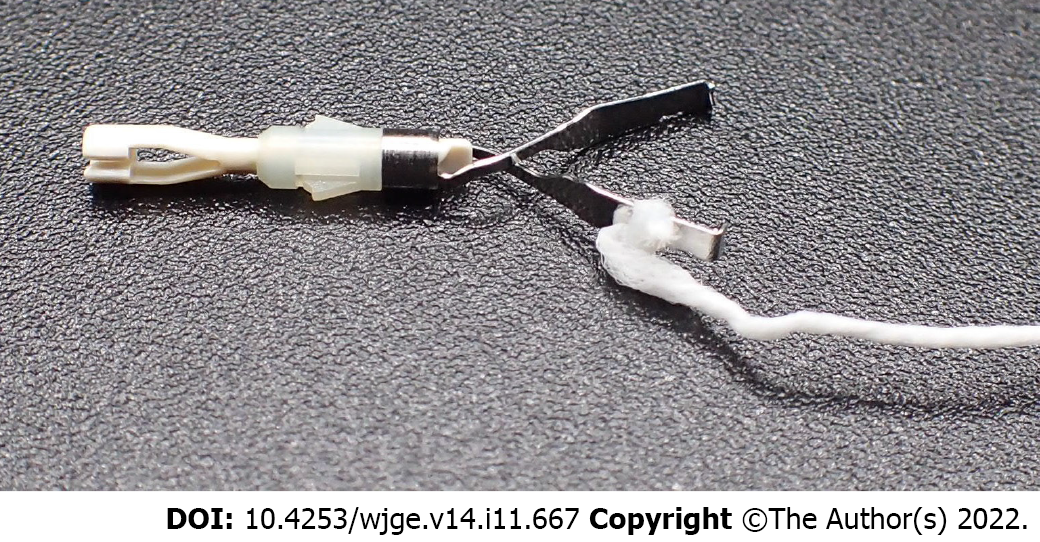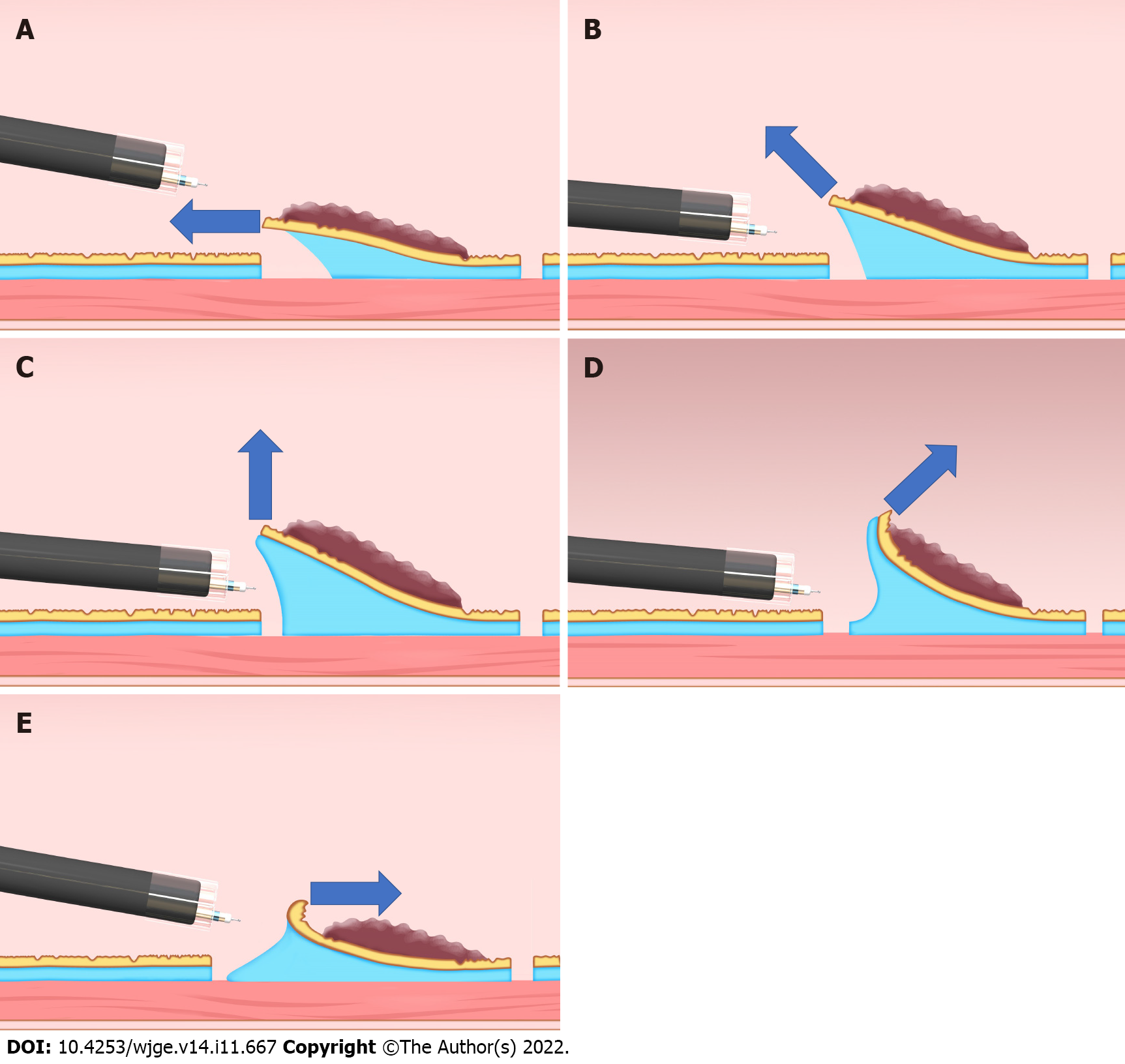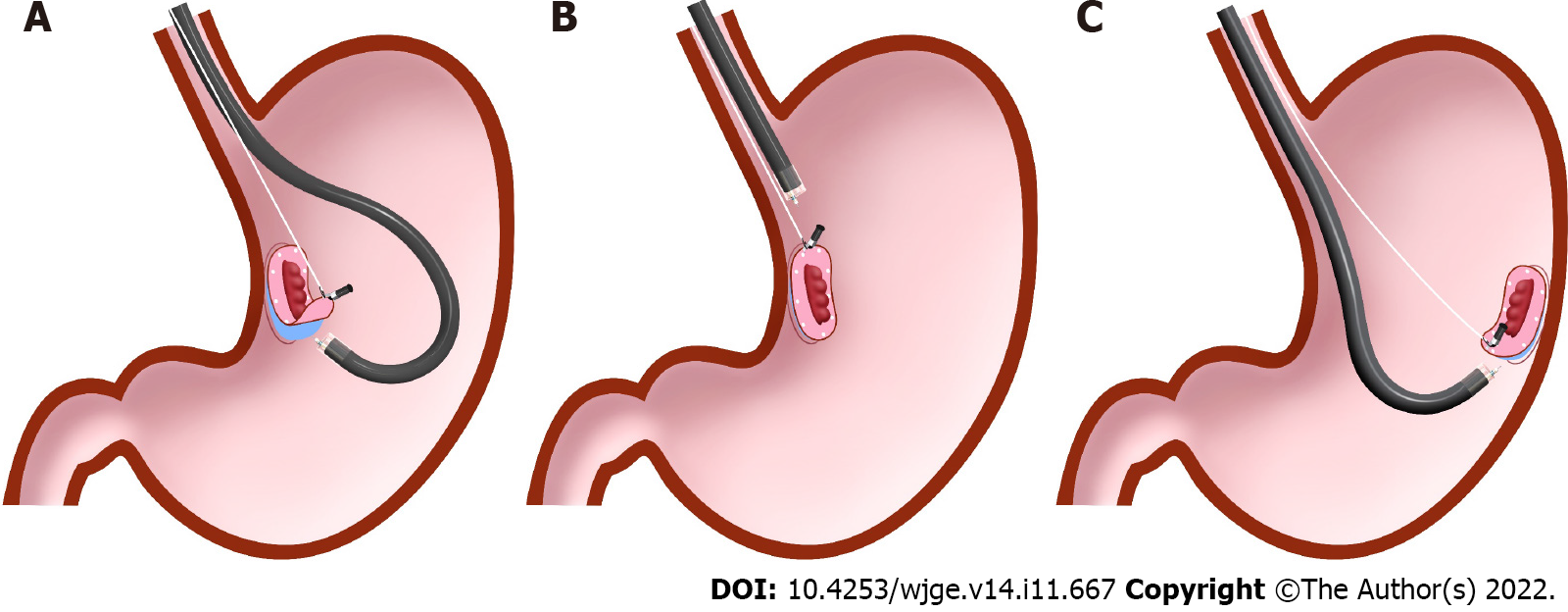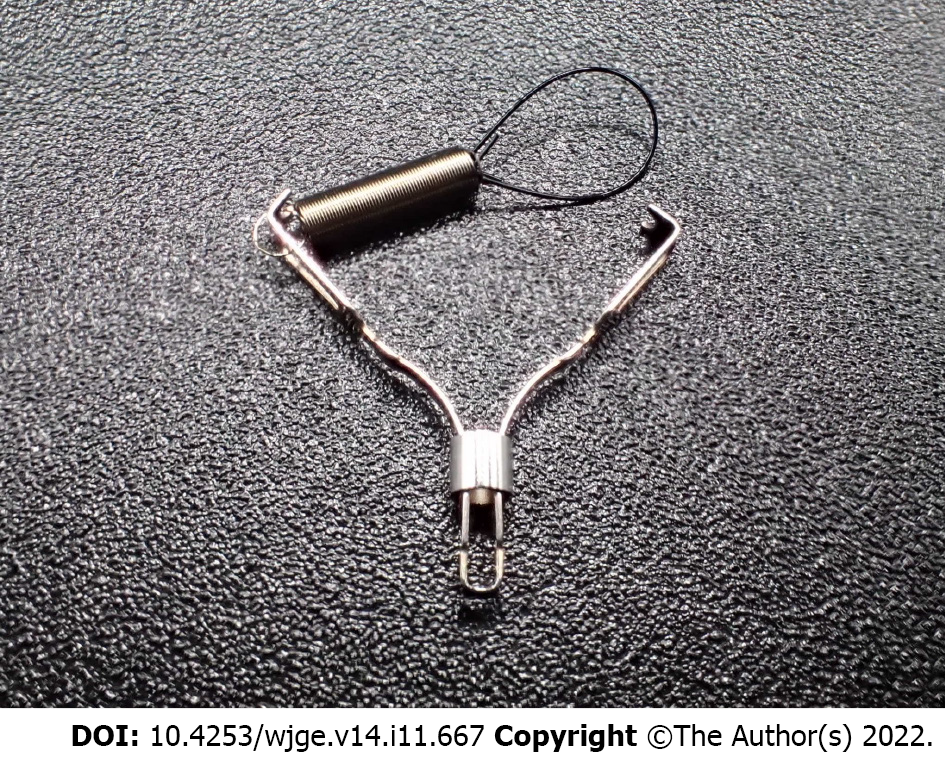Copyright
©The Author(s) 2022.
World J Gastrointest Endosc. Nov 16, 2022; 14(11): 667-671
Published online Nov 16, 2022. doi: 10.4253/wjge.v14.i11.667
Published online Nov 16, 2022. doi: 10.4253/wjge.v14.i11.667
Figure 1 A clip-with-line was made by tying a commercially available dental floss to the arm section of the hemoclip.
Figure 2 Classification of the traction direction.
A: Proximal traction; B: Diagonally proximal traction; C: Vertical traction; D: Diagonally distal traction; E: Distal traction. Citation: Reprinted from Mitsuru Nagata. Advances in traction methods for endoscopic submucosal dissection: What is the best traction method and traction direction? World Journal of Gastroenterology 2022; 28(1): 1–22. Copyright ©Mitsuru Nagata 2022. Published by Baishideng Publishing Group Inc.
Figure 3 Differences in traction direction depending on the lesion location in clip-with-line–assisted endoscopic submucosal dissection.
A: Distal traction; B: Proximal traction; C: Vertical traction. Citation: Reprinted from Mitsuru Nagata. Advances in traction methods for endoscopic submucosal dissection: What is the best traction method and traction direction? World Journal of Gastroenterology 2022; 28(1): 1–22. Copyright ©Mitsuru Nagata 2022. Published by Baishideng Publishing Group Inc.
Figure 4 An S–O clip (Zeon Medical, Tokyo, Japan) was made of a 5 mm-long spring and 4 mm-long nylon loop on one side of the clip claws.
- Citation: Nagata M. Optimal traction direction in traction-assisted gastric endoscopic submucosal dissection. World J Gastrointest Endosc 2022; 14(11): 667-671
- URL: https://www.wjgnet.com/1948-5190/full/v14/i11/667.htm
- DOI: https://dx.doi.org/10.4253/wjge.v14.i11.667












